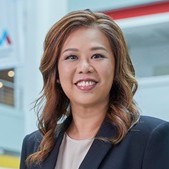In an period when job-hopping has change into the norm and worker loyalty appears more and more elusive, the Singapore Institute of Administration (SIM) is quietly defying the pattern. With 35% of its staff having stayed for greater than a decade—and almost 10% being alumni—this non-public training institute is exhibiting that with the appropriate tradition, improvement alternatives and shared goal, retention will be greater than an HR metric however a lifestyle.
“Folks need to do significant and purposeful work, which is acknowledged and rewarded,” Sara Yik, chief human capital officer on the institute, informed HRM Asia. “Folks be part of—and stick with—SIM as a result of they resonate with our goal.”
‘Study for all times, thrive for all times’
That goal is deeply embedded within the establishment’s DNA. With a $60 million (Singapore {dollars}) SIM Influence Fund supporting bursaries, scholarships and different initiatives that make training extra accessible, staff see their work translate instantly into lives modified.
“Our objective is for our learners to ‘be taught for all times, thrive for all times,’ ” Yik stated. “They see our college students graduate and go on to have profitable jobs and careers and take pleasure in actually making a distinction to 1000’s of individuals over the 60 years of SIM’s historical past.”
Whereas Yik is fast to say that loyalty can’t be designed in a prescriptive approach, she believes it may be cultivated. “We concentrate on constructing a tradition the place staff really feel seen, supported, empowered, and valued,” she stated. This consists of every thing from psychological security and social capital to clear position expectations and performance-linked rewards.
See additionally: Disengaged staff’ excessive value: Why tradition issues greater than ever
Every position at this institute, which has a workforce of about 800 staff, is outlined by a transparent “worth add”—a shift from activity-based KPIs to outcome-driven contributions. And in relation to recognition, the institute acknowledges achievements effectively earlier than annual critiques. Contributions are acknowledged recurrently throughout platforms comparable to city halls and Core Worth Awards, reinforcing the hyperlink between conduct, values and impression.
New hires, in the meantime, embark on a structured journey starting with an interactive orientation program and are invited to tea periods with the president and CEO inside their first six months. “It permits newcomers to get to know the management in a extra pure setting,” stated Yik.
Constructing a tradition in a hybrid world

In at present’s hybrid and dispersed workplaces, tradition can usually really feel diluted. Not so on the institute.
“We imagine {that a} sturdy and cohesive tradition is constructed via constant and intentional practices,” Yik stated.
One such anchor? The group’s refreshed Core Values—Act with Integrity, Respect for the Particular person, Be Learner-Centred, Collaborate, and Repeatedly Study and Innovate—which had been developed with intensive worker enter and are built-in into every day operations and efficiency value determinations. “All new hires attend a Core Values workshop to know our Core Values and are inspired to stay them in every day work behaviours and practices,” she stated.
The institute additionally takes worker suggestions significantly. Annual engagement surveys are adopted by seen motion. In 2024, this led to twenty team-level motion plans and 30 cross-functional initiatives, starting from know-how upgrades and the removing of Saturday shifts to the sponsorship of postgraduate levels.
Yik added, “Taking seen motion on suggestions builds belief, which is the inspiration of a powerful tradition.”
To advertise belonging, the institute organizes each formal and casual bonding actions—from leisure occasions and festive celebrations to division-wide crew constructing. This yr, the complete workforce headed to Johor Bahru, Malaysia, for an organization-wide retreat. “These occasions are deliberately designed to advertise interplay throughout generations, genders, ethnicities and departments; to foster larger understanding, inclusivity, and to strengthen staff’ sense of belonging,” she defined.
For organizations fighting hybrid workforces, Yik’s recommendation is evident: “Talk the ‘why’ of administration choices, have interaction staff by searching for their enter, create alternatives for significant bonding, and equip managers to steer and develop their groups.”
These practices guarantee tradition stays vibrant, even when groups are dispersed.
Studying as a technique for office loyalty, not a perk
As a lifelong studying establishment, the institute treats worker improvement as a strategic precedence, not only a profit. By way of its Studying@SIM program, the group invests almost S$1 million yearly in role-based expertise improvement, providing e-learning, seminars, workshops and in-person coaching. “We’re a skills-based group, the place every position has recognized core and practical expertise,” Yik stated.
HR collaborates with enterprise leaders to map present and future expertise, guaranteeing studying aligns with strategic objectives.
Learn extra: Why caring management is your subsequent strategic crucial
Profession pathways empower staff to take possession of their improvement, the group’s HR leaders imagine. Skilled Improvement Plans, mentioned with managers, assist staff establish and shut talent gaps. Entry to LinkedIn Studying and curated packages on subjects like generative AI, cybersecurity and knowledge safety encourages self-directed studying. SIM additionally affords a ten% tuition grant for its E-Studying Graduate Certificates in high-demand fields like analytics and HR administration, reinforcing its dedication to progress. “Studying@SIM helps maximize and develop our human capital,” Yik stated, emphasizing that studying is a driver of organizational success.
Trying forward, Yik predicts a number of elements will reshape HR over the subsequent 5 years: AI, individuals analytics and the rise of the skills-based workforce.
“AI will automate administrative HR duties and release time for strategic work,” she stated. “In the meantime, individuals analytics will enable HR to make use of workforce knowledge to offer real-time and predictive insights, serving to leaders make higher choices.”
Essentially the most vital shift, nonetheless, stands out as the transfer from role-based to skills-based expertise fashions, she stated.
“Hiring, promotion, and workforce improvement will more and more concentrate on expertise,” Yik stated. “HR should map present versus future expertise, establish gaps and design reskilling pathways to maintain organizations agile.”
Josephine Tan wrote this story for HRM Asia. Discover extra from this creator at HRMAsia.com.



